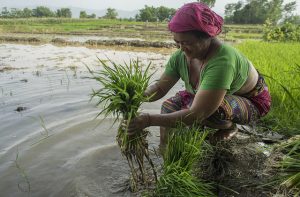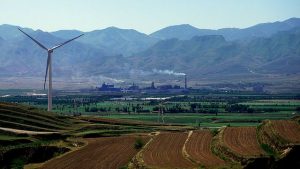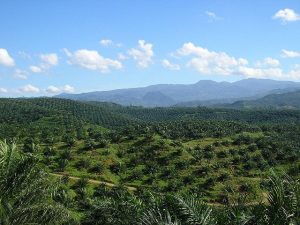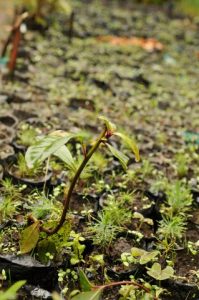Originally published on the CIMMYT website.
 Wheat, rice, maize, pearl millet, and sorghum provide over half of the world’s food calories. To maintain global food security under climate change, there is an increasing need to exploit existing genetic variability and develop crops with superior genetic yield potential and stress adaptation.
Wheat, rice, maize, pearl millet, and sorghum provide over half of the world’s food calories. To maintain global food security under climate change, there is an increasing need to exploit existing genetic variability and develop crops with superior genetic yield potential and stress adaptation.
Climate change impacts food production by increasing heat and water stress among other environmental challenges, including the spread of pests, according to a recent study published by researchers at the International Maize and Wheat Improvement Center (CIMMYT). If nothing is done to currently improve the crops we grow, wheat, maize and rice are predicted to decrease in both tropical and temperate regions. Wheat yields are already slowing in most areas, with models predicting a six percent decline in yield for every 1 degree Celsius increase in global temperature.


 Purity, a Kenyan farmer shares her experiences and benefits of dairy farming with fodder trees.
Purity, a Kenyan farmer shares her experiences and benefits of dairy farming with fodder trees. Farmer Managed Natural Regeneration is an approach which World Vision uses to restore degraded land in projects throughout the world. The practice of FMNR can increase crop yields, firewood and livestock fodder. It can diversify household income sources through the sale of excess tree and non-tree products. It also has the ability enhance resilience to climate change and extreme weather conditions.
Farmer Managed Natural Regeneration is an approach which World Vision uses to restore degraded land in projects throughout the world. The practice of FMNR can increase crop yields, firewood and livestock fodder. It can diversify household income sources through the sale of excess tree and non-tree products. It also has the ability enhance resilience to climate change and extreme weather conditions. In his address to the World Economic Forum, Chinese President Xi showed China’s willingness to step into a growing global leadership role, including on climate change. Xi called for all countries to hold fast to the hard-won Paris Agreement, saying “walking away” from the pact would threaten future generations, and that green development is already showing promising results. This was a continuation of the stance China took during the climate talks in Marrakech, Morocco last year, where the country indicated its intent to advance ambitious climate action.
In his address to the World Economic Forum, Chinese President Xi showed China’s willingness to step into a growing global leadership role, including on climate change. Xi called for all countries to hold fast to the hard-won Paris Agreement, saying “walking away” from the pact would threaten future generations, and that green development is already showing promising results. This was a continuation of the stance China took during the climate talks in Marrakech, Morocco last year, where the country indicated its intent to advance ambitious climate action. The world has never seen such political momentum to protect our planet’s forests. Around the world, 366 companies, worth $2.9 trillion, have committed to eliminating deforestation from their supply chains,
The world has never seen such political momentum to protect our planet’s forests. Around the world, 366 companies, worth $2.9 trillion, have committed to eliminating deforestation from their supply chains,  Kuki Njeru’s eyes sparkle as she discusses her bamboo business. “There’s immense potential in restoring the gullies with bamboo,” she says. “Not only does it grow well on degraded land, it helps stabilize soils and prevent erosion as well.”
Kuki Njeru’s eyes sparkle as she discusses her bamboo business. “There’s immense potential in restoring the gullies with bamboo,” she says. “Not only does it grow well on degraded land, it helps stabilize soils and prevent erosion as well.”